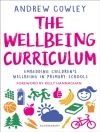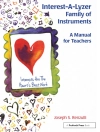This volume brings together diverse theoretical reflections and practices of community engaged scholarship in order to stimulate critical discussion, deepen theory, and invite critical practice. It is an international trend that higher education institutions and agencies are encouraging and promoting community engagement. At the same time, there is recognition of a lack of consistent definitions and understandings of what it is they are promoting. As a counterweight to the dominance of pragmatic and technical discussions in the literature on engaged scholarship, the chapters in this book shift the discourse to ask foundational questions that emphasize the political nature of engagement. Recognizing that acts of engagement are never neutral, the authors in this book explore how engaged scholarship requires decision-making that is inherently grounded in values, beliefs, and interpretations of what is and what ought to be. Alongside complex global and local social movements rising to address issues, for example climate change or the global financial collapse and the uneven consequences of these globalized problems, we see corresponding concerns expressed about the limited participation by excluded, silenced, and invisibilized people throughout the world. How can engaged scholarship be mobilized and who will it serve within such contexts? With contributions covering such diverse topics as a non-binary approach to engagement; citizenship of knowledge; university contexts and corporatization; stranger pedagogies and anti-foundational approaches to service learning; contemporary revolutionary movements in the Arab world; and transforming higher education through Africanist onto-epistemologies, this volume is poised to open the door to a deeper understanding of engaged scholarship.
Содержание
Preface; 1. Introduction; 2. Beyond the Binary: Scholarship, Engagement, and Social Transformation; 3. Between Engagement and Citizenship: Scholarship, Public Policy and Their Others; 4. Engaged Scholarship in a Time of the Corporatization of the University and Distrust of the Public Sphere: A Decolonizing Response; 5. Engaging Africanist Philosophies and Epistemologies in Education for Social Development: Historical and Current Analyses; 6. ‘The Stranger’ in CSL Pedagogy and Research: Learning In, Through, and for CSL as Anti-foundational Practice; 7. Little Stories of Social Justice: Lessons I Learned from Immigrant Women and First Nations People; 8. Social Learning and Deliberative Democracy; 9. Deliberative Democracy, A Collaborative Action Oriented Learning Process For A More Sustainable Future; 10. Shifting Development Education and University Engagement: A Project of Moral and Cognitive Reconstruction of Citizenship; 11. Digital Youth, Arab Revolution and the Challenge of Education and Work: 2011; 12. The Mediatization of Democracy, and The Specter of Critical Media Engagement: Are the Medium and the Message Still Relevant?; Contributor Biographies; Index.












